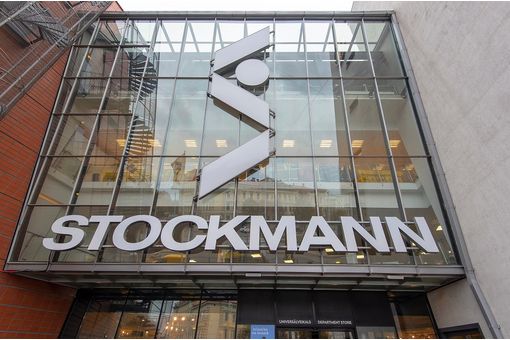Interviews
Backdoor card check rulings threaten job creation
01 Sep '11
3 min read
The National Retail Federation expressed strong disappointment with three rulings handed down by the National Labor Relations Board this week, saying the actions threaten the ability of businesses to create jobs.
“At a time when the Administration is suggesting it will reduce job-killing government regulation, this is another example of the government taking steps that make it harder for businesses to create the jobs our economy needs so badly,” NRF Senior Vice President for Government Relations David French. “The surest way to prevent job growth is to enact workplace rules such as these that limit employer flexibility and stymie our ability to grow our businesses and jobs.”
The NLRB on Tuesday issued three rulings that will make it easier for unions to organize private sector workplaces, similar to elements of the Employee Free Choice Act that was rejected in Congress in 2007. Despite the defeat of the “card check” legislation, labor leaders have continued to make the bill's provisions a top priority, and critics have warned repeatedly that the Obama Administration would use the administrative powers of the NLRB to implement the provisions without the approval of Congress.
“We warned a year ago that organized labor would use the NLRB to do an end-run around Congress,” French said. “These rulings amount to nothing more than backdoor card check.”
Under one of the rulings, workers opposed to forming a union would no longer be able to demand a secret ballot election after pro-union workers had signed union cards in a “card check” election that was voluntarily accepted by the employer. Elimination of secret ballot elections was the key element of the 2007 EFCA legislation.
In another ruling, unions could cherry pick certain departments or groups of employees within a company rather than being required to have a unionization vote by all employees. In retail, a union could organize just the shoe department in a department store, for example.
In the third ruling, employees or the new owner of an already-unionized company could no longer immediately challenge the existence of the union when the company is sold. Instead, they would be required to wait a “reasonable period” and give the union a “fair chance.”
The rulings came on NLRB Chairwoman Wilma Leibman's last day on the job as her term expired. They were adopted on a series of 3-1 votes supported by the board's three Democrats – Leibman along with Craig Becker and Mark Pearce – while Brian Hayes, the board's only Republican, dissented. President Obama last year made recess appointment of Becker, a former AFL-CIO staff counsel, and Pearce, a lawyer who represented unions in private practice, to the board after the Senate refused to act on their nominations.
As the world's largest retail trade association and the voice of retail worldwide, NRF's global membership includes retailers of all sizes, formats and channels of distributionas well as chain restaurants and industry partners from the United States and more than 45 countries abroad. In the United States, NRF represents an industry that includes more than 3.6 million establishments and which directly and indirectly accounts for 42 million jobs – one in four U.S. jobs. The total U.S. GDP impact of retail is $2.5 trillion annually, and retail is a daily barometer of the health of the nation's economy.
“At a time when the Administration is suggesting it will reduce job-killing government regulation, this is another example of the government taking steps that make it harder for businesses to create the jobs our economy needs so badly,” NRF Senior Vice President for Government Relations David French. “The surest way to prevent job growth is to enact workplace rules such as these that limit employer flexibility and stymie our ability to grow our businesses and jobs.”
The NLRB on Tuesday issued three rulings that will make it easier for unions to organize private sector workplaces, similar to elements of the Employee Free Choice Act that was rejected in Congress in 2007. Despite the defeat of the “card check” legislation, labor leaders have continued to make the bill's provisions a top priority, and critics have warned repeatedly that the Obama Administration would use the administrative powers of the NLRB to implement the provisions without the approval of Congress.
“We warned a year ago that organized labor would use the NLRB to do an end-run around Congress,” French said. “These rulings amount to nothing more than backdoor card check.”
Under one of the rulings, workers opposed to forming a union would no longer be able to demand a secret ballot election after pro-union workers had signed union cards in a “card check” election that was voluntarily accepted by the employer. Elimination of secret ballot elections was the key element of the 2007 EFCA legislation.
In another ruling, unions could cherry pick certain departments or groups of employees within a company rather than being required to have a unionization vote by all employees. In retail, a union could organize just the shoe department in a department store, for example.
In the third ruling, employees or the new owner of an already-unionized company could no longer immediately challenge the existence of the union when the company is sold. Instead, they would be required to wait a “reasonable period” and give the union a “fair chance.”
The rulings came on NLRB Chairwoman Wilma Leibman's last day on the job as her term expired. They were adopted on a series of 3-1 votes supported by the board's three Democrats – Leibman along with Craig Becker and Mark Pearce – while Brian Hayes, the board's only Republican, dissented. President Obama last year made recess appointment of Becker, a former AFL-CIO staff counsel, and Pearce, a lawyer who represented unions in private practice, to the board after the Senate refused to act on their nominations.
As the world's largest retail trade association and the voice of retail worldwide, NRF's global membership includes retailers of all sizes, formats and channels of distributionas well as chain restaurants and industry partners from the United States and more than 45 countries abroad. In the United States, NRF represents an industry that includes more than 3.6 million establishments and which directly and indirectly accounts for 42 million jobs – one in four U.S. jobs. The total U.S. GDP impact of retail is $2.5 trillion annually, and retail is a daily barometer of the health of the nation's economy.
The National Retail Federation
Popular News
Leave your Comments
Editor’s Pick
Dr. Michael Duetsch & Man Woo Lee
UPM Biochemicals and Dongsung Chemical
Anita Dongre & Yash Dongre
House of Anita Dongre Limited
































-Ltd..jpg?tr=w-120,h-60,c-at_max,cm-pad_resize,bg-ffffff)





.jpg?tr=w-120,h-60,c-at_max,cm-pad_resize,bg-ffffff)
.jpg?tr=w-120,h-60,c-at_max,cm-pad_resize,bg-ffffff)






